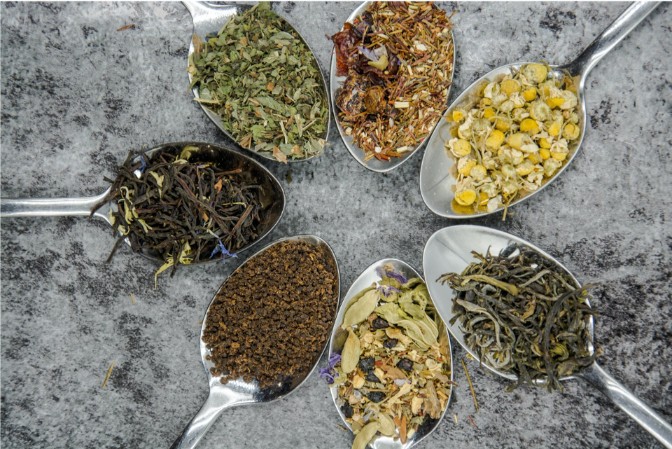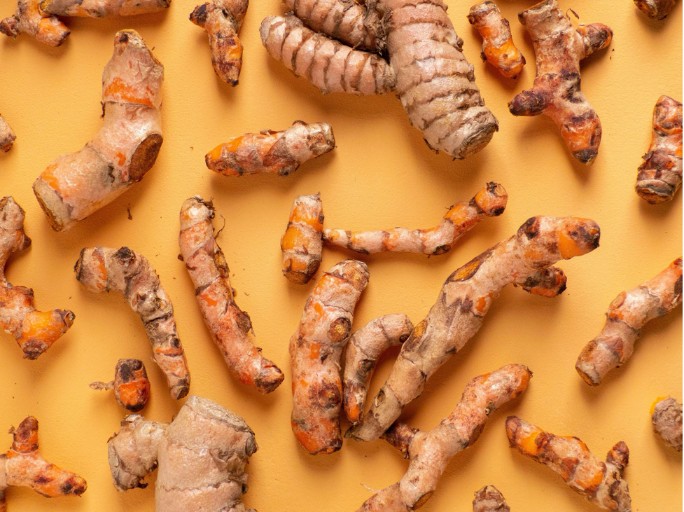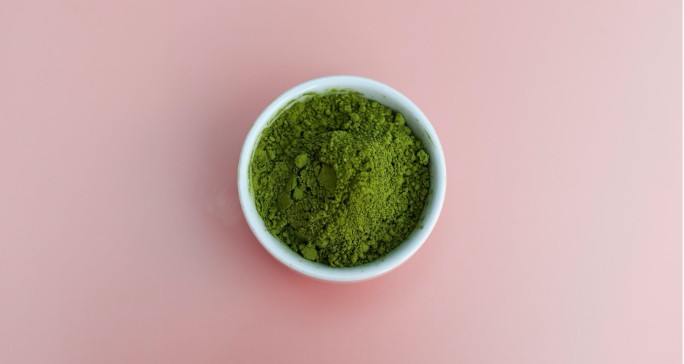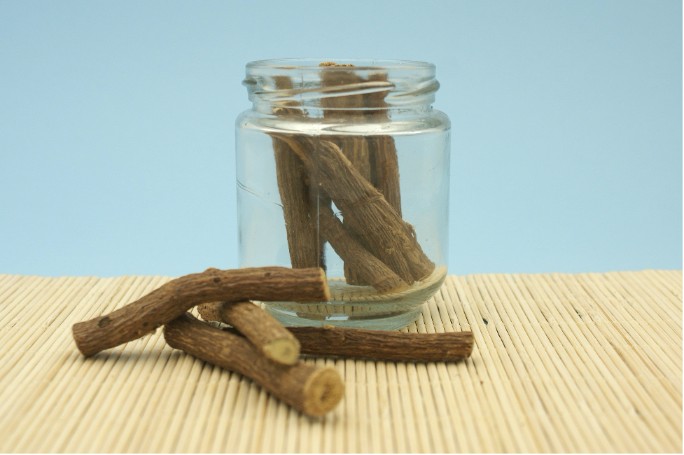Written by: Mirieta Selimovska, MHSc. (c)

During this year’s cold and flu season more than ever, protecting our health is top of mind for many. With that, there is an apparent emphasis on what we choose to eat and drink. Next to water, tea is the most popular beverage of choice enjoyed around the world. Oftentimes, the ingredients used to make tea are found to have health-promoting properties that can benefit one’s well-being. Meraki’s Artisan Teas are ethically-sourced, handcrafted right here in Canada, and are available in a variety of blends. It is during cold and flu season, however, that their NEW Wellness line takes centre stage. Here is a look into the different blends featured in this collection, and some of the potential benefits that brewing them over the cold, wintery months ahead could bring to your health!
The Meraki Wellness Tea Collection:
1. Immunity Blend (ingredients: ginger, turmeric root, carrot & beet pieces, echinacea, pineapple pieces, rosehip, amaranth & calendula petals, and natural flavours).
For years, ginger has been used in cooking as well as in herbal medicine. An active component in ginger, called gingerol, has been suggested to offer anti-inflammatory and antibacterial properties (1). Similarly, and from the same family, is turmeric. Turmeric is a great source of curcumin, a very strong antioxidant that can also help to reduce inflammation (2). Some research also suggests that echinacea, a flowering plant, contains anti-viral properties that can potentially stimulate the immune system and its response to foreign cells. Talk about flower power! (3)

2. Digestion Blend (ingredients: ginger, peppermint, dandelion leaves, cinnamon, cardamom, lemon balm, licorice, fennel. burdock root, cornflower petals, and natural flavours).
As the name suggests, this blend features a variety of ingredients that can aid in digestion. Ginger and peppermint are both very soothing for tummy aches, including discomfort and bloating that can come from eating a large meal. Licorice is also a popular herbal remedy for treating gastric distress, as it too is anti-inflammatory and soothing. These benefits are attributed to glycyrrhizic acid, which is a highly potent compound found within the licorice root. Some research also suggests licorice to be immunostimulating, like echinacea (4).
3. Antioxidant Blend (ingredients: rooibos, green tea & matcha powder, rosehip, elderberry & blueberry pieces, lavender, rose & amaranth petals, and natural flavours).
Antioxidants are known for protecting against oxidative stress and damage to cells throughout the body. By combining quality sources such as rooibos, green tea and matcha powder, as well as dried berries, this blend packs a true punch (5). The rosehip, lavender and rose particularly help to enhance the flavour of this blend and bring out its natural sweet taste.

4. Energy Blend (ingredients: green mate, lemongrass, green tea & matcha powder, spearmint, gingko, ginseng, nettle, calendula, cornflower & sunflower petals, and natural flavours).
In addition to being valuable sources of antioxidants, green tea and matcha are also very stimulating because of their caffeine content. Much research has explored the properties of a particular compound in green teas, called EGCG, and its potential to help with enhancing mental clarity and focus (6). Other ingredients in this blend, including lemongrass and spearmint help to offset the bitterness of the green teas and add a refreshing flavour. This blend is ideal for busy mornings or as an energizing pick-me-up during an afternoon slump!
5. Serenity Blend (ingredients: lemongrass, peppermint, chamomile, rosehip, spearmint, passionflower, valerian root, hibiscus, cornflower petals, and natural flavours).
A long or stressful day calls for a cup of Meraki’s Serenity tea. Active compounds found within peppermint and chamomile can help to induce relaxation. As a common natural treatment for insomnia and anxiety, valerian root can also support this and create a calming effect with its anxiolytic properties (7).

6. Detox Blend (ingredients: ginger, licorice, tulsi (holy basil), dandelion leaves, burdock root, elderflowers, rose & safflower petals, and natural flavours).
The human body does an excellent job of ridding the body of waste and toxins on its own. To encourage these natural processes, ingredients found in Meraki’s Detox blend may be helpful. In addition to those aforementioned and their roles in supporting digestion, dandelion leaves are another functional ingredient to consider. Dandelion is a natural diuretic, meaning that it helps to stimulate the excretion of waste (8). Unlike many other teas on the market that are suggested to provide similar effects, the flavour of this blend is actually very enjoyable! I personally like to drink it as is, unsweetened.
Bottom line?
Quality-sourced teas can be a tasty and convenient way to enjoy the suggested health-promoting benefits of many functional foods. This is a collection that you’re definitely going to want to keep stocked in your pantry for the cold winter months ahead! Meraki Artisan Teas are available online at www.merakiartisanteas.com . For more tips on how to prep your kitchen and combat this year’s cold and flu season, join me on Instagram: @thesweetenedpea
Disclaimer: This article is sponsored by Meraki Artisan Teas. All ideas, thoughts and opinions are my own, and supported by evidence when necessary. The information provided in this article is general, and does not replace the personalized recommendations that can be offered by consulting a licensed healthcare professional.
References:
(1) Park, M., Bae, J., & Lee, D. (2008). Antibacterial activity of [10]-gingerol and [12]-gingerol isolated from ginger rhizome against periodontal bacteria. Phytotherapy Research,22(11), 1446-1449. doi:10.1002/ptr.2473
(2) Perrone, D., Ardito, F., Giannatempo, G., Dioguardi, M., Troiano, G., Russo, L. L., . . . Muzio, L. L. (2015). Biological and therapeutic activities, and anticancer properties of curcumin. Experimental and Therapeutic Medicine,10(5), 1615-1623. doi:10.3892/etm.2015.2749
(3) Bałan, B. J., Sokolnicka, I., Skopińska-Różewska, E., & Skopiński, P. (2016). The modulatory influence of some Echinacea -based remedies on antibody production and cellular immunity in mice. Central European Journal of Immunology,1, 12-18. doi:10.5114/ceji.2016.58813
(4) Raveendra, K. R., Jayachandra, Srinivasa, V., Sushma, K. R., Allan, J. J., Goudar, K. S., Shivaprasad, H. N., Venkateshwarlu, K., Geetharani, P., Sushma, G., & Agarwal, A. (2012). An Extract of Glycyrrhiza glabra (GutGard) Alleviates Symptoms of Functional Dyspepsia: A Randomized, Double-Blind, Placebo-Controlled Study. Evidence-based complementary and alternative medicine : eCAM, 2012, 216970. https://doi.org/10.1155/2012/216970
(5) Peluso, I., & Serafini, M. (2017). Antioxidants from black and green tea: from dietary modulation of oxidative stress to pharmacological mechanisms. British journal of pharmacology, 174(11), 1195–1208. https://doi.org/10.1111/bph.13649
(6) National Center for Complementary and Integrative Health. (2020, October). Green Tea. Retrieved October 20, 2020, from https://www-nccih-nih-gov.ezproxy.lib.ryerson.ca/health/green-tea
(7) Felgentreff, F., Becker, A., Meier, B., & Brattström, A. (2012). Valerian extract characterized by high valerenic acid and low acetoxy valerenic acid contents demonstrates anxiolytic activity. Phytomedicine,19(13), 1216-1222. doi:10.1016/j.phymed.2012.08.003
(8) Clare, B. A., Conroy, R. S., & Spelman, K. (2009). The diuretic effect in human subjects of an extract of Taraxacum officinale folium over a single day. Journal of alternative and complementary medicine (New York, N.Y.), 15(8), 929–934. https://doi.org/10.1089/acm.2008.0152

